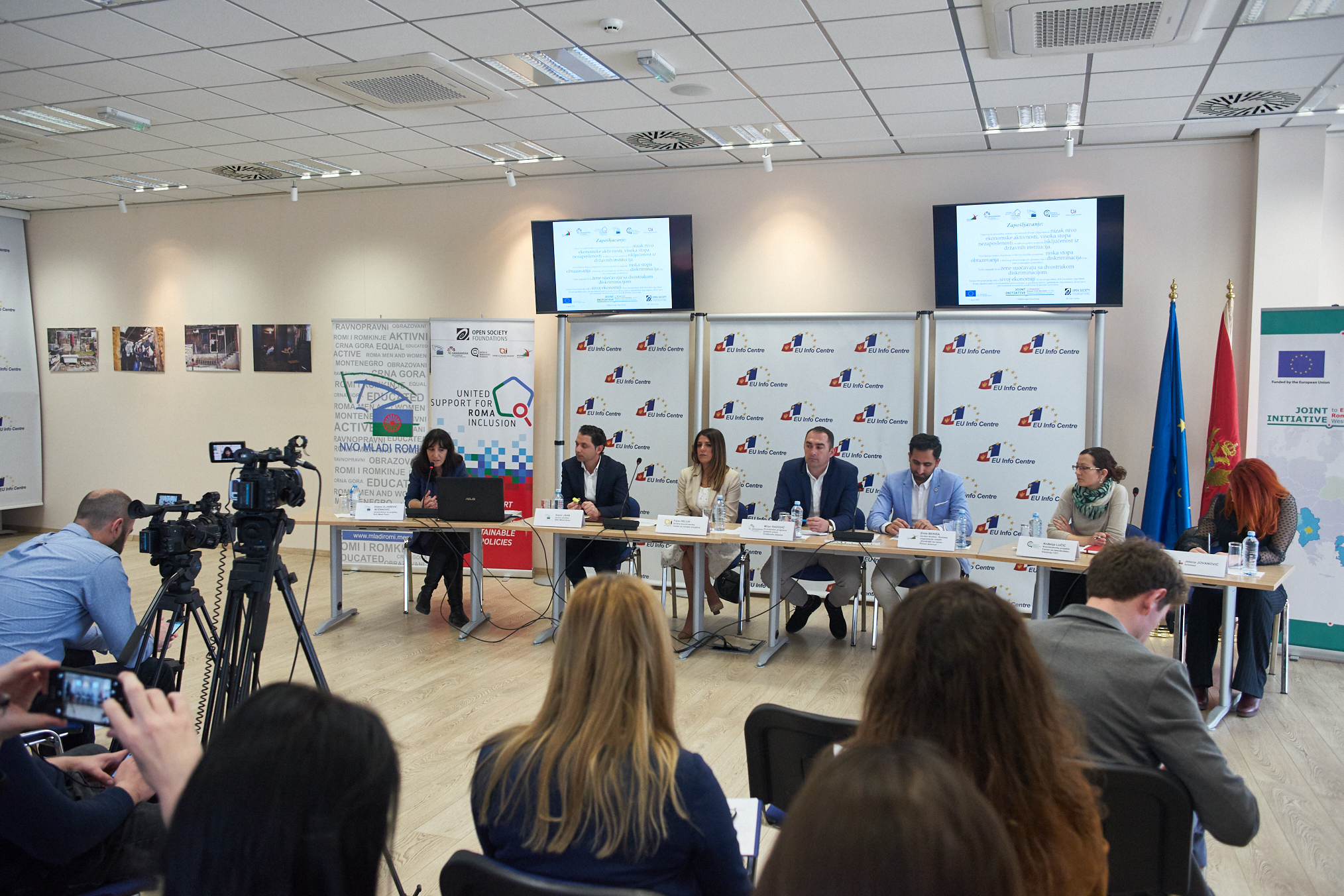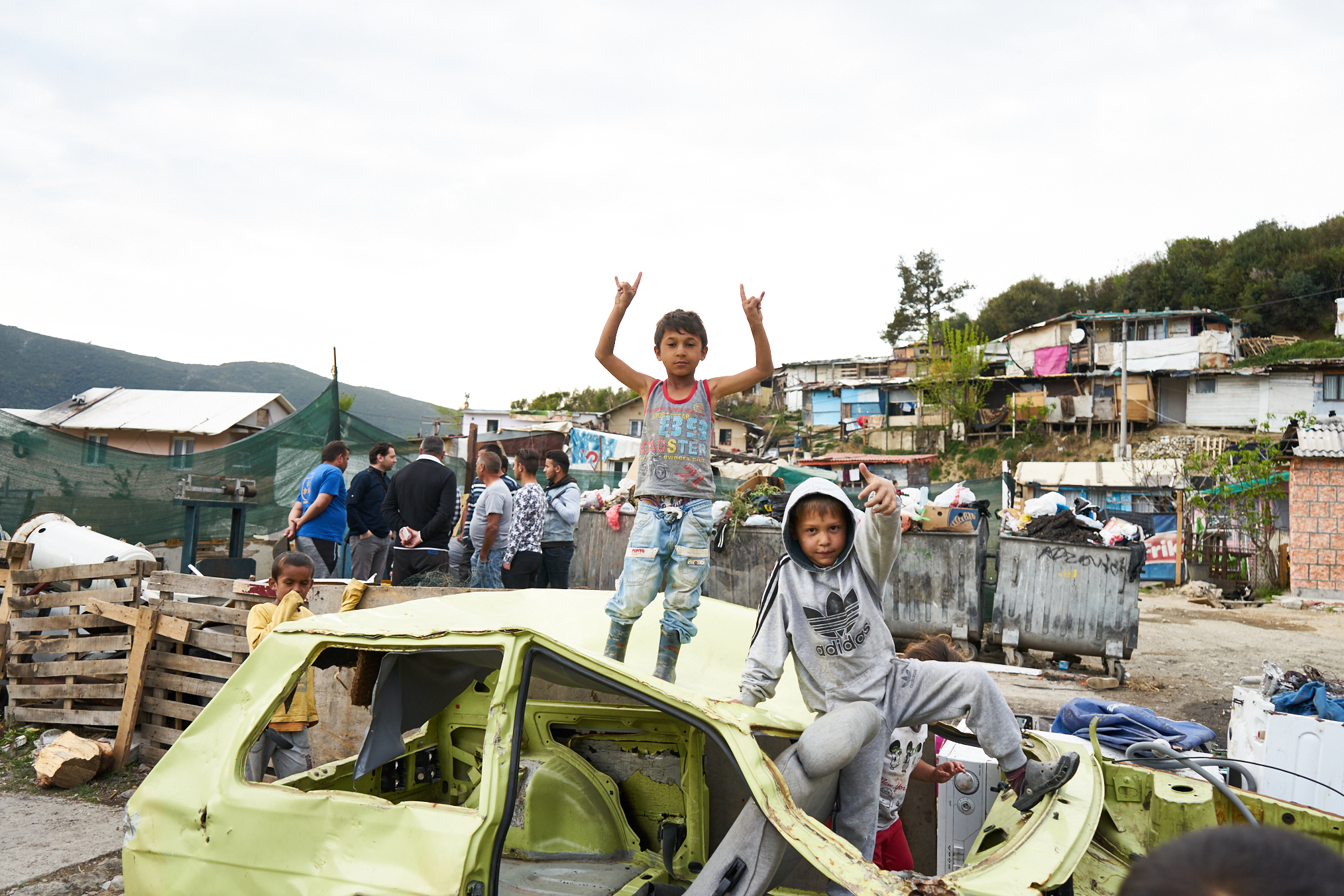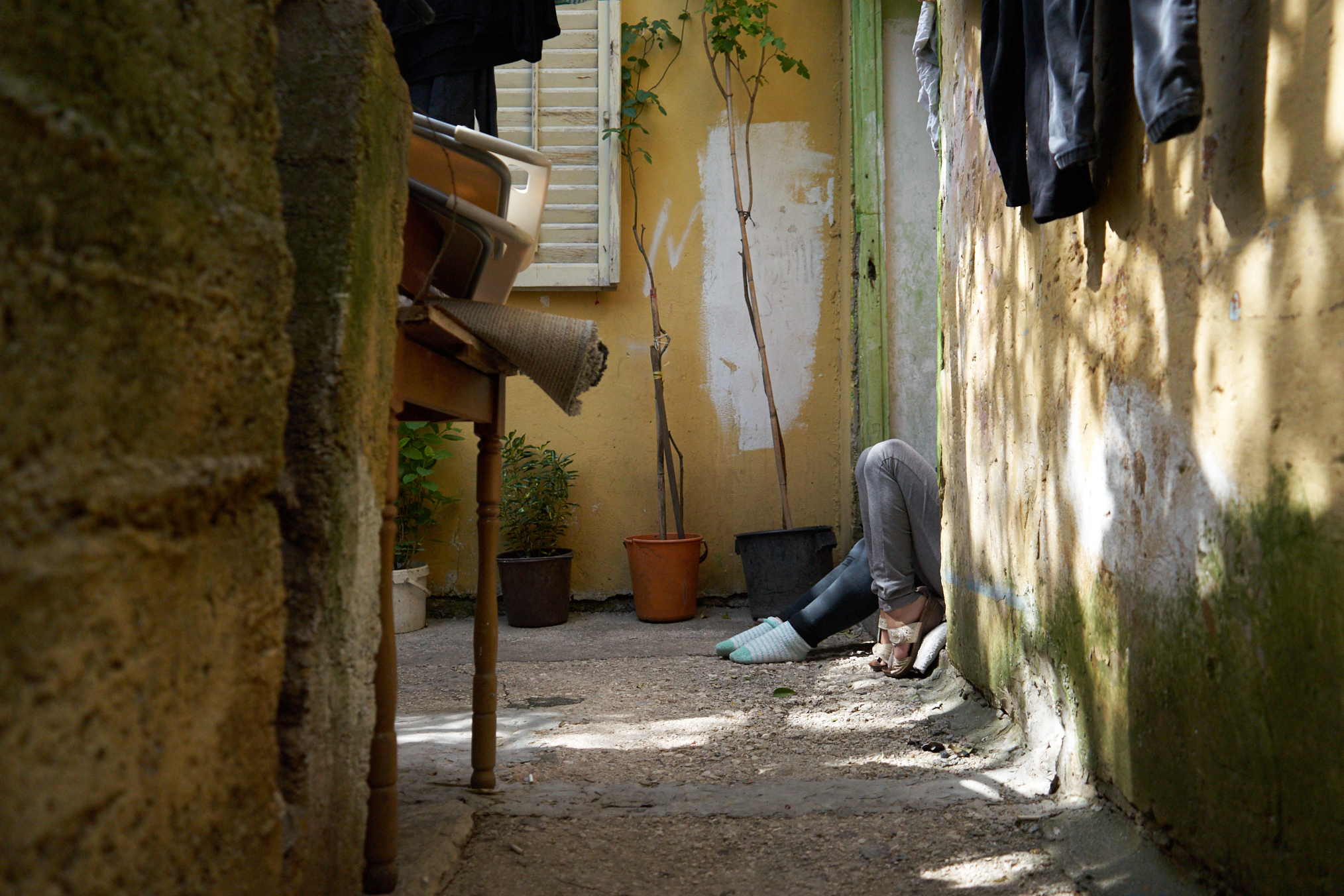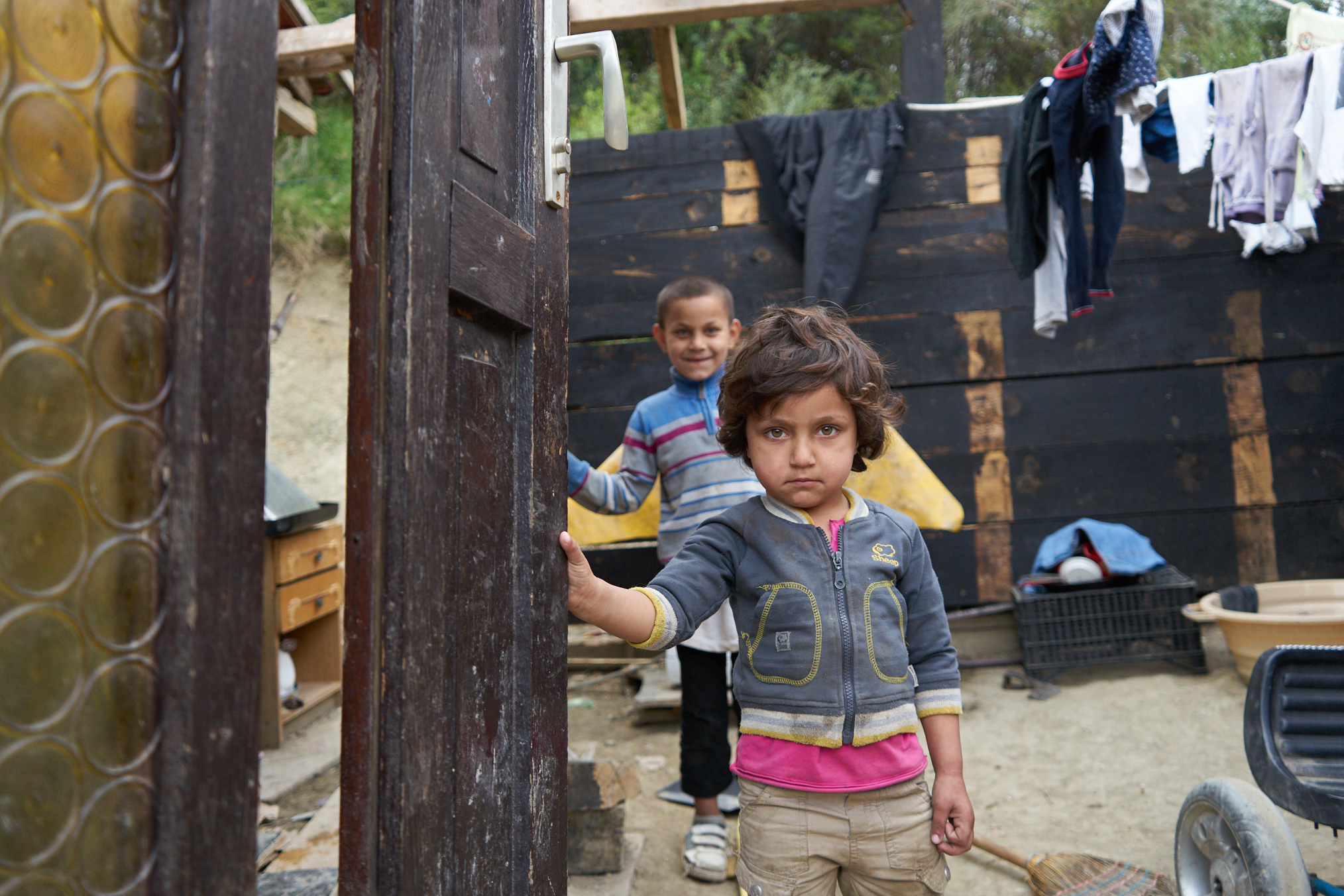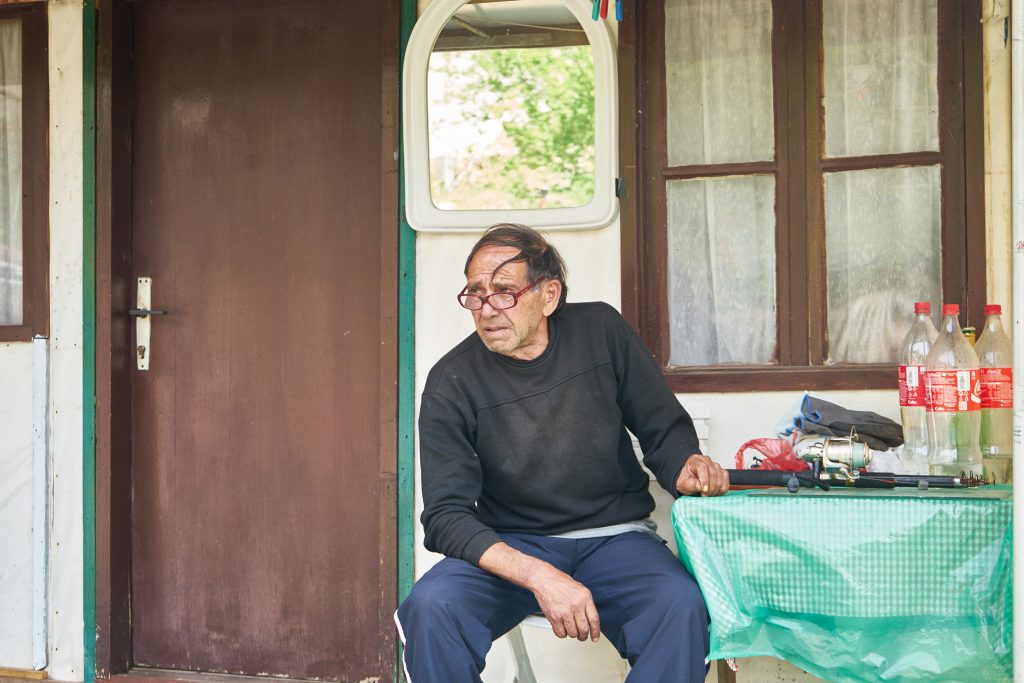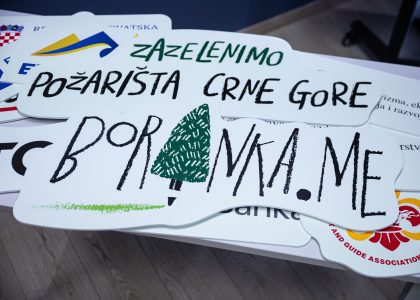Podgorica, 5 April 2018 – To mark International Roma Day, the NGO Youth Roma, in cooperation with the coalition of organisations “Together for the Inclusion of Roma and Egyptians”, presented the report “Social Integration of Roma and Egyptians in Montenegro – NGO Monitoring Report” in the EU Info Centre .
The coalition analysed legislation at the domestic and international levels, including reports on the implementation of action plans from the Strategy for the Social Inclusion of Roma and Egyptians 2016-2020. Field visits were organised to all cities where Roma live, and the coalition’s activists interviewed representatives of the Roma community and representatives of the institutions in charge of the implementation of social integration policies.
Samir Jaha from the NGO Youth Roma explained that, when it comes to housing conditions, some progress has been made; however, the majority of Roma, about 70% of them, still live in separate settlements.
“In most settlements Roma are isolated, they are distant from schools, hospitals and social services. What we have determined is that the families live in a very small, overcrowded, home-based environment in poor and unhealthy living conditions,” Jaha said.
There are two basic problems of housing care, apart from the poor quality of the facilities in which they live: a lack of land and the legal status of their facilities.
“Most of the settlements were built on private property or state land. In Podgorica, a significant number of Roma live on illegally owned properties that were built on state property. In Budva, about 50 families, with around 200 members, live in temporary buildings which were built on state land, and that land is in the process of restitution to its original owners. These individuals are under constant threat of forced eviction. There are about 170 families on the coast who are at constant risk of eviction. Ninety percent of these people are citizens of Montenegro,” said Jaha.
The analysis shows that from 2015 to 2016, 110 cases of child begging were processed, of which 104 children have not received adequate treatment due to being taken to a home for juvenile delinquency. In the NGO sector, it is considered that this is not in the children’s interest, as these children were probably forced to beg.
“In this way, we believe that the existing legal framework is not effective when it comes to preventing and eliminating violations of children’s rights and begging. When we talk about preventing child begging, according to all the available data, it is obvious that the institutions are not sufficiently empowered to deal with this topic, nor are they adequately taking care of begging children,” said Elvis Berisha of the Roma Youth Organisation – Phiren Amenca.
A survey by the Regional Cooperation Council shows that Montenegro has the lowest percentage of companies in the region employing Roma – only 3% of firms.
“When it comes to Roma, I can say that they are almost completely excluded from the labour market and this situation is particularly worrying when it comes to state institutions,” said Milan Radovic from the Civic Alliance.
The coalition has developed a case-study programme and examples of good practice for most of the areas in the focus of monitoring for this part of the NGO sector, which will be addressed to the authorities in order to improve the status of Roma in Montenegro.

